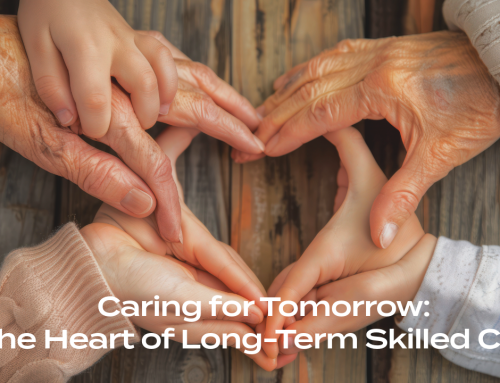Did you know that end of life care is basically support for patients who are in the last months, weeks, days, or even hours of their life? In essence, end of life care should help the patient live as well as humanly possible until they pass away with dignity. The staff who provides the care should ask the patient about his or her preferences and wishes. The care team should also take the patient’s wishes into consideration when working with them in order to plan their care. The end of life care team should also work directly with the patient’s support team such as their family, friends, and others who are important to them.
Patients have the right to fully express their wishes. That includes where they would prefer to receive care including where they want to pass away. In essence, patients can receive end of life care at home, in a hospice, the hospital, or nursing home facility. However, most patients find that it makes the most sense to receive end of life care in a nursing home facility or hospice that specialties in providing such services. Needless to say, patients who are at the end of their life cycle deserve the highest quality care available.
A variety of healthcare and social care professionals will typically be involved in the end of life care process, but that certainly depends on the patient’s exact needs. In essence, doctors, nurses, counselors, therapists and others will usually be part of the team. The end of life care process should start when the patient needs it and the cycle may last anywhere from a few days to a few months or even a year. However, patients in many different situations tend to benefit from end of life care. Patients may even be projected to pass away within hours.
As a rule of thumb, patient’s are considered to be at the end of their life cycle when they are most likely to pass away within a year or less. However, it’s not an exact science and can be a bit difficult to predict. That being stated, most patients who have an advanced and incurable illness such as stage four cancer or advanced dementia are good candidates for end of life care. In addition, patients who are frail and have coexisting conditions should be in end of life care.
Please contact us today for more information about our end of life care facility and program.
Matulaitis Rehabilitation and Skilled Care is the leading non-profit skilled nursing facility in Northeast Connecticut. We are proud to receive top national rankings and the highest five-star rating from Medicare’s Nursing Home Compare. Our dedicated staff combines renowned care and exceptional nursing skills with a holistic approach. We fully realize that the restoration of your health and well-being after an illness, operation, or injury can be incredibly difficult.
Our long term care features attention to the whole person, assuring individualized care for fullness of living, spiritual welfare, and providing a sense of community with enriching programming. We invite you to learn more about our special smoke-free facility as you consider your own or a loved one’s needs.






